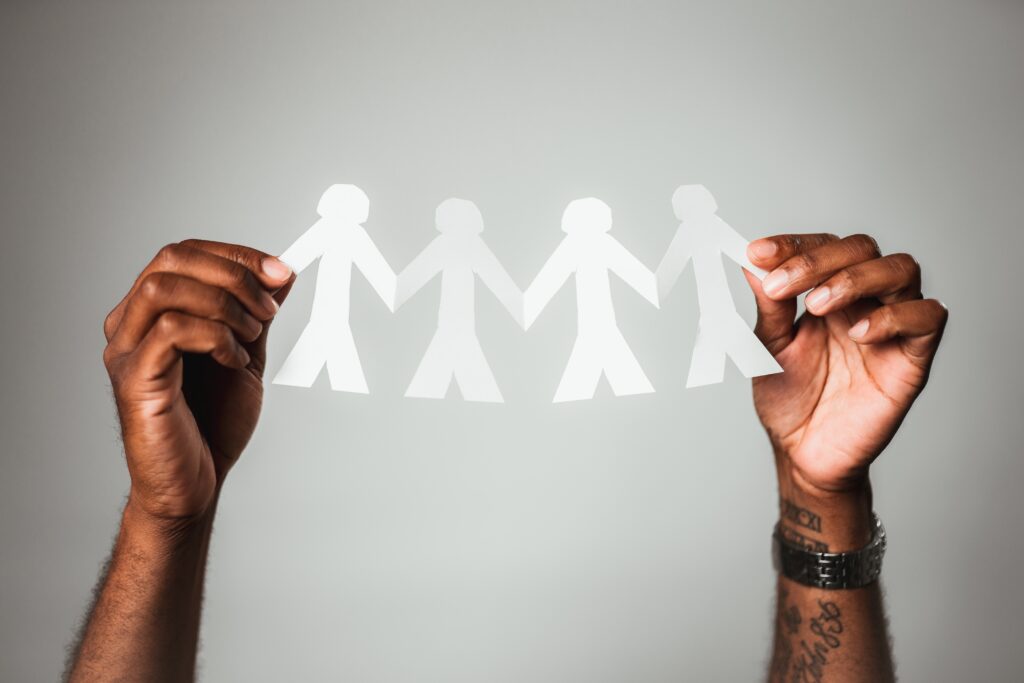Introduction
Introverts, often seen as the thinkers and observers in a crowd, have always sparked curiosity 🤔. While traditionally perceived as reserved or shy, the modern view of introversion is evolving. More introverts are embracing the idea of an introvert to extrovert transition, a journey that’s not just about being more outgoing but about understanding and harnessing one’s inner strengths. This shift challenges long-held beliefs, opening doors to new possibilities. It’s a fresh approach, reflecting the belief that personality is not set in stone but can be molded and developed with time and effort. 🌱🔄

Historical Perspectives on Introversion
The concept of introversion, as we understand it today, has its roots deeply embedded in the history of psychology. Carl Jung, a Swiss psychiatrist, was one of the first to introduce the terms ‘introvert’ and ‘extrovert’ in the early 20th century. Jung described introversion as an inward orientation of energy, where individuals find solace and energy in their own internal world. This historical lens provides a foundational understanding, but it’s just the beginning of the introvert’s story.
Throughout the 20th century, the perception of introverts oscillated between admiration for their deep thought and criticism for their perceived lack of sociability. The industrial era, with its emphasis on teamwork and extroverted leadership styles, often placed introverts in the shadows. However, in the realms of science, literature, and art, introverted individuals like Albert Einstein, Virginia Woolf, and Pablo Picasso thrived, bringing forth groundbreaking contributions and challenging societal norms.
The mid to late 20th century witnessed a shift in understanding introverts, thanks in part to psychological studies that highlighted the strengths of a reflective and cautious approach. Introverts began to be seen as thoughtful, introspective, and creative individuals, capable of deep focus and profound insights. This change was mirrored in the increasing interest in personality tests, like the Myers-Briggs Type Indicator, which helped people understand and appreciate the introvert’s place in a diverse world.
In the 21st century, the digital age brought a new perspective. The rise of online communities and remote work offered introverts platforms where they could excel and express themselves comfortably. This era also witnessed a growing awareness and acceptance of different personality types, with books like Susan Cain’s “Quiet: The Power of Introverts in a World That Can’t Stop Talking” playing a significant role in changing public perception.
However, it’s important for introverts to recognize that this history is not just a narrative of how others see them but also a reflection of their evolving self-perception. As you explore the idea of an introvert test, it’s a chance to connect with this rich history and understand your place within it. With a deeper appreciation of their past, introverts can navigate the present and future with greater confidence and self-awareness. 🌟📚🌍

Misconceptions and Stereotypes about Introverts
Despite the evolving understanding of introversion, numerous misconceptions and stereotypes continue to cloud the true nature of introverts. Often, introverts are mistakenly labeled as antisocial, unfriendly, or overly shy. These stereotypes stem from a fundamental misunderstanding of what it means to be an introvert. At its core, introversion is about where one draws energy from – inwardly from solitary activities, rather than outwardly from social interactions. This distinction, however, is frequently overlooked, leading to unfair characterizations.
One common stereotype is the belief that introverts are not good at socializing. In reality, many introverts can be quite sociable and enjoy meaningful interactions; they simply prefer quality over quantity. Their approach to socialization is often more about depth than breadth, seeking out connections that are genuinely engaging and fulfilling. Another misconception is that introverts are not good leaders. Contrary to this belief, introverts can be highly effective leaders. They often exhibit qualities like thoughtfulness, the ability to listen, and a preference for depth in problem-solving – all vital leadership skills.
The myth that introverts are always quiet or reserved is another stereotype. While many introverts may present themselves as reserved, this is not a universal trait. Introversion is more about how one recharges and processes information internally, rather than always being quiet. Some introverts can be quite expressive and outspoken, especially in situations they are passionate about.
The emergence of the intro to extro community has been instrumental in dispelling these myths. It provides a platform for introverts to share their experiences and challenges these stereotypes head-on. By fostering discussions and offering support, the community helps in reshaping the narrative around introversion, showing the world that introverts are diverse, capable, and dynamic individuals.
The persistence of these misconceptions underscores the importance of continued dialogue and education about introversion. It’s crucial for society to move beyond superficial judgments and appreciate the complex, multifaceted nature of introverts. This understanding not only benefits introverts but enriches the social fabric as a whole, creating a more inclusive and empathetic world. 🌐🤝💬✨

The Evolution of Public Opinion on Introverts
Public opinion on introverts has undergone a significant transformation in recent years, a change driven by a deeper understanding and greater visibility of introversion in society. This evolution is a journey from misconception to appreciation, highlighting how perceptions shift as knowledge increases. Initially, introverts were often viewed through a narrow lens, perceived as withdrawn or less capable in a world that celebrated extroversion. However, this view has been gradually changing, thanks in part to a wealth of research and prominent figures championing the strengths of introversion.
The rise of the digital age and social media has played a crucial role in this shift. The internet has provided introverts with platforms to express themselves, share experiences, and connect with like-minded individuals. These online communities have challenged traditional notions of introversion, showcasing the diversity and depth of introverted personalities. As a result, society has started to see introverts not just as quiet individuals but as thinkers, innovators, and creators who bring valuable insights and perspectives.
Another factor contributing to this change is the growing body of literature and research on introversion. Books such as Susan Cain’s “Quiet: The Power of Introverts in a World That Can’t Stop Talking” have been instrumental in changing perceptions. Such works shed light on the strengths of introverts, emphasizing their ability for deep thought, sensitivity to others’ needs, and capacity for concentrated focus.
The concept of an intro to extro roadmap has further influenced public opinion. This idea suggests that introverts possess untapped potential that can be realized through personal growth and development. It challenges the notion of fixed personality traits, proposing that introverts can learn extroverted skills without losing their core essence. This perspective is refreshing and empowering, as it encourages introverts to explore new aspects of their personality while valuing their inherent qualities.
Overall, the evolution of public opinion on introverts reflects a broader cultural shift towards valuing diversity in personality types. It’s a move from a one-size-fits-all approach to recognizing the unique contributions of different individuals. This change not only benefits introverts but also fosters a more inclusive and understanding society, where varied traits and perspectives are celebrated. 🌍📚🔄🌟

How the Media Portrays Introverts
The portrayal of introverts in media has significantly influenced public perception, shaping how society views and understands introversion. Historically, media representations often fell into cliched stereotypes, depicting introverts as socially awkward, reclusive, or overly intellectual characters. These portrayals reinforced a narrow and often negative view of introversion, overlooking the diversity and richness of introverted personalities.
In film and television, introverted characters were frequently cast in supporting roles, overshadowed by more dynamic, extroverted protagonists. When introverts were the main characters, they were often portrayed as needing to “come out of their shell” – a narrative that implied introversion was a hurdle to overcome rather than a legitimate personality trait. This trend reflected and perpetuated the societal bias towards extroversion, suggesting that being outgoing and socially dominant was the ideal.
However, in recent years, there has been a noticeable shift in how introverts are represented in media. This change is part of a broader movement towards more nuanced and authentic portrayals of diverse personalities. Contemporary media increasingly features introverted characters who are complex, relatable, and central to the storyline. These characters are shown as thoughtful, observant, and insightful, contributing significantly to their environments in ways that differ from their extroverted counterparts.
This more balanced representation has helped in demystifying introversion, illustrating that introverts are not just defined by a lack of sociability but by a rich inner life and a different approach to interaction and problem-solving. Introverted characters are now more often depicted as strong, capable, and self-assured in their own right, challenging the traditional narrative that introversion is a trait to be fixed.
The evolving media portrayal of introverts plays a crucial role in shaping societal attitudes. By offering a broader range of introverted characters, media not only provides more accurate representations but also fosters greater empathy and understanding among audiences. This shift encourages a more inclusive view of personality types, allowing for a deeper appreciation of the strengths and contributions of introverts in various aspects of life. 🎬📺🔄🌟
The Strengths and Advantages of Being an Introvert
Introversion, often misunderstood and undervalued, comes with a unique set of strengths and advantages that are crucial in both personal and professional realms. Introverts possess qualities that are not only beneficial but essential in a balanced society. One of the key strengths of introverts is their capacity for deep thought and reflection. Unlike extroverts, who tend to process information through interaction, introverts prefer to think things through before speaking or acting. This introspective nature allows them to develop well-thought-out ideas and solutions, making them valuable contributors in settings that require careful analysis and creativity.
Another significant advantage is their ability to listen and observe. Introverts are often excellent listeners, able to pay attention to details and understand the nuances in conversations. This trait makes them effective communicators and empathetic partners, both in personal relationships and in collaborative work environments. Their observational skills also enable them to notice things that others might overlook, providing unique insights and perspectives.
Introverts are also typically self-reliant and independent. They are comfortable with solitude and can work effectively without the need for constant external validation or social interaction. This independence fosters a strong sense of self and an ability to focus deeply on tasks, leading to high levels of productivity and creativity. In a world that is increasingly fast-paced and interconnected, the ability to find focus and clarity within oneself is a significant advantage.
Moreover, introverts often excel in building meaningful and lasting relationships. While they may have fewer social connections than extroverts, the relationships they do form are usually deep and rich. They value quality over quantity in their interactions, leading to strong bonds built on mutual understanding and respect.
The strengths of introverts are vital in a diverse society. They complement extroverted traits, creating a balance that allows for a range of ideas, perspectives, and approaches to flourish. Recognizing and valuing these introverted qualities is key to harnessing the full potential of individuals and teams, fostering an environment where everyone’s contributions are appreciated. 🤔👂🌱💪
How to Appreciate and Support the Introverts in Your Life
Appreciating and supporting the introverts in your life is essential for fostering healthy, balanced relationships and environments, whether at home, in the workplace, or in social settings. Understanding and valuing the unique qualities of introverts not only enhances their well-being but also enriches the lives of those around them. The first step in this process is recognizing and respecting their need for solitude. Unlike extroverts, who recharge by being around others, introverts rejuvenate through alone time. Respecting this need for space is crucial; it’s not a sign of antisocial behavior but a way for them to regain energy and clarity.
Effective communication is another key aspect of supporting introverts. This involves not only listening to what they say but also understanding how they express themselves. Introverts often prefer deeper, more meaningful conversations over small talk. Encouraging and engaging in such discussions can help them feel heard and valued. Additionally, be patient and give them time to process and respond; they may take longer to articulate their thoughts compared to extroverts.
In professional settings, recognizing the strengths of introverts can significantly enhance team dynamics and productivity. This includes valuing their contributions in meetings, even if they are not the loudest voices in the room. Providing various channels for input, such as written feedback or one-on-one conversations, can ensure that their insights are captured. Also, creating a work environment that offers both collaborative and independent workspaces caters to the varying needs of introverts and extroverts alike.
Celebrating the successes of introverts in a way that aligns with their comfort level is also important. Not all introverts may appreciate public recognition, so understanding and respecting their preferences is key. Small, thoughtful gestures can be more meaningful than grand public accolades.
Ultimately, appreciating and supporting introverts involves embracing their perspective and valuing the diversity they bring. It’s about creating an inclusive environment where different personalities can thrive. By doing so, we not only empower introverts but also create a more empathetic and understanding society that recognizes the strengths in every individual. 🤝🌿💡🌐
Conclusion
In conclusion, “Unraveling the Mystery: Do People Really Like Introverts?” takes us on a journey through the multifaceted world of introversion, shedding light on the historical perspectives, misconceptions, evolving public opinions, media portrayals, inherent strengths, and ways to support introverts. This exploration reveals that introverts, with their unique qualities and perspectives, are not only liked but also deeply valued in various aspects of life. The shift in societal attitudes towards a more inclusive understanding of introversion underscores the importance of embracing diversity in personality types.
As we navigate a world that is increasingly recognizing the value of both introverted and extroverted traits, it’s essential to continue fostering environments where everyone feels understood and appreciated. Whether in personal relationships, professional settings, or broader societal interactions, appreciating the quiet strength and reflective depth of introverts is key to building a more balanced and empathetic society. By celebrating the differences and harnessing the strengths of all personality types, we can create a world that thrives on diversity and inclusivity. This journey of understanding and appreciation is not just about liking introverts; it’s about recognizing and valuing the unique contributions they bring to our lives and our world. 🌍💡🤝❤️




